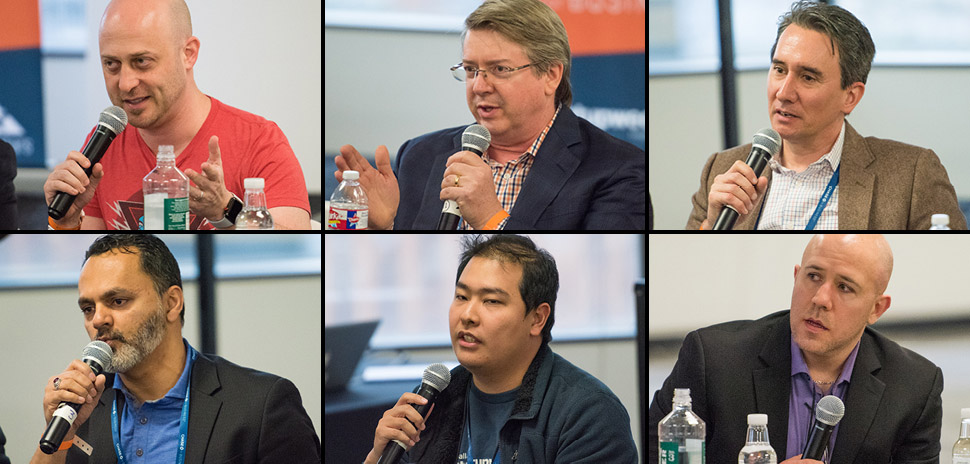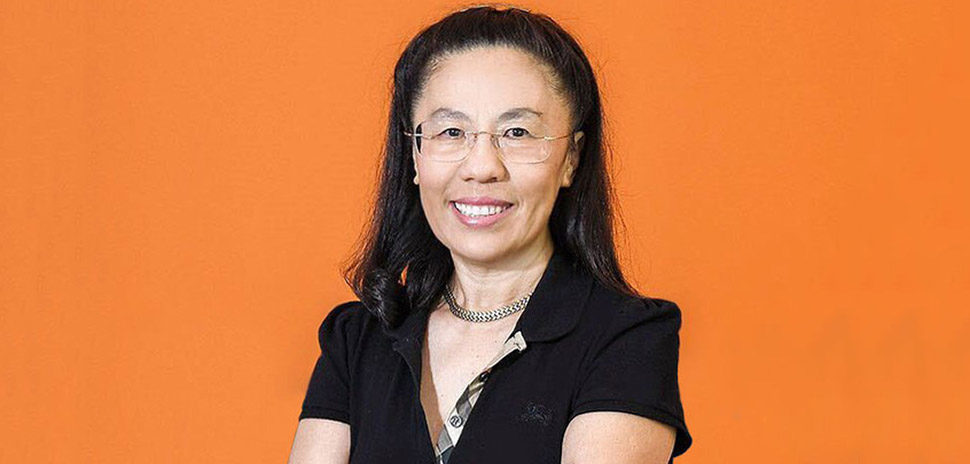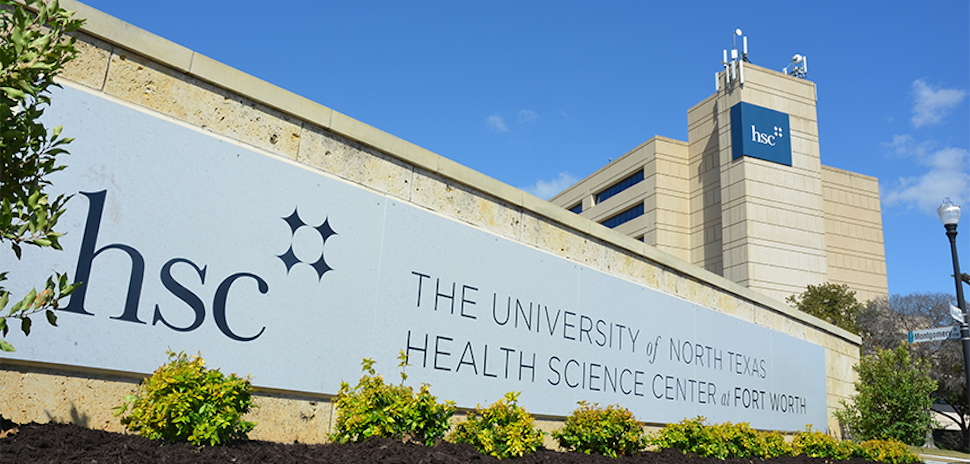Capital Factory will be opening its new accelerator on Oak Lawn in Dallas in mid-May, joining a list of other accelerator programs that each have their own specialty in North Texas.
Joshua Baer, founder of Austin-based Capital Factory, said this will be “epic space” at the Centrum.
“They just put the sign up yesterday. It looks super cool.”
Joshua Baer
“They just put the sign up yesterday,” Baer said. “It looks super cool.”
These days, startups have plenty of choices when it comes to technology accelerators that it can often make it difficult. So, Baer joined other experts for the panel “Can an Accelerator or Incubator Jumpstart your Startup,” at Dallas Startup Week to discuss the pros and cons on Tuesday morning.
Accelerators are typically three-month programs where the startup gets one-on-one help from mentors, access to investors and customer connections so the company can grow rapidly and reach the market.
But the burden is still on the entrepreneur.
“Don’t go to an accelerator thinking they will make you successful,” Baer said. “You have to be successful. We’re an amplifier. It comes from you. There’s no silver bullet. Nobody up here is going to solve all your problems for you.”
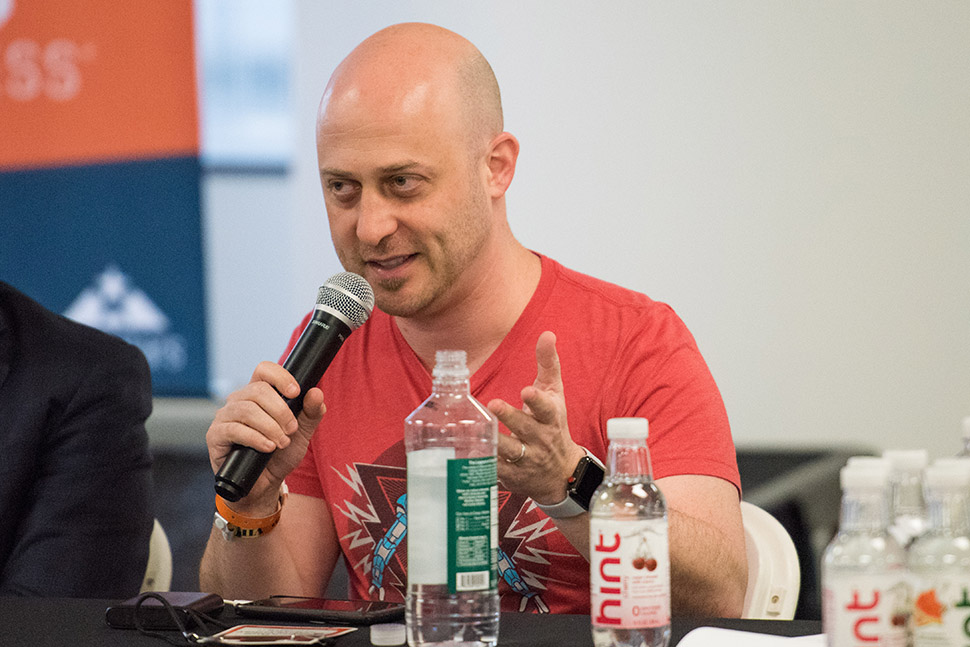
Joshua Baer of Capital Factory [Photo by Michael Samples]
STARTUPS SHOULD RANK THEIR PRIORITIES IN AN ACCELERATOR
Some startups want to stay local — they don’t want to move to Austin or Silicon Valley so they are limited to accelerators in North Texas. Others might be seeking help from an industry-specific group, like REVTECH in Dallas. And finally, some startups might be after the biggest bang for their buck and be willing to relocate to get the largest investment.
Baer described it as a graph where you rank your priorities. On one axis, is your location. For some, that’s a “religious decision” they aren’t going to move. But if the startup has the opportunity to participate in a three-month program like Y Combinator in Silicon Valley, some startups will jump at the chance, Baer said.
“Y Combinator has magic answers with great mentors and a certain cache and network,” Baer said.
Another axis will rank the priorities of industry specific accelerators.
“I wake up in the morning excited to help entrepreneurs. It’s a super fun place to play.”
David Matthews
“For that, it’s often worth traveling if you need to,” Baer said. “It tends to be customer connections that they have.”
David Matthews, managing director of RevTech, said they can make connections to executives at large retailers such as J.C. Penney, Neiman Marcus, and others that are based in DFW. They also have access to more than 100 mentors who have worked in the C suites at large retailers.
The retail world is evolving quickly because of e-commerce but it’s still very relevant.
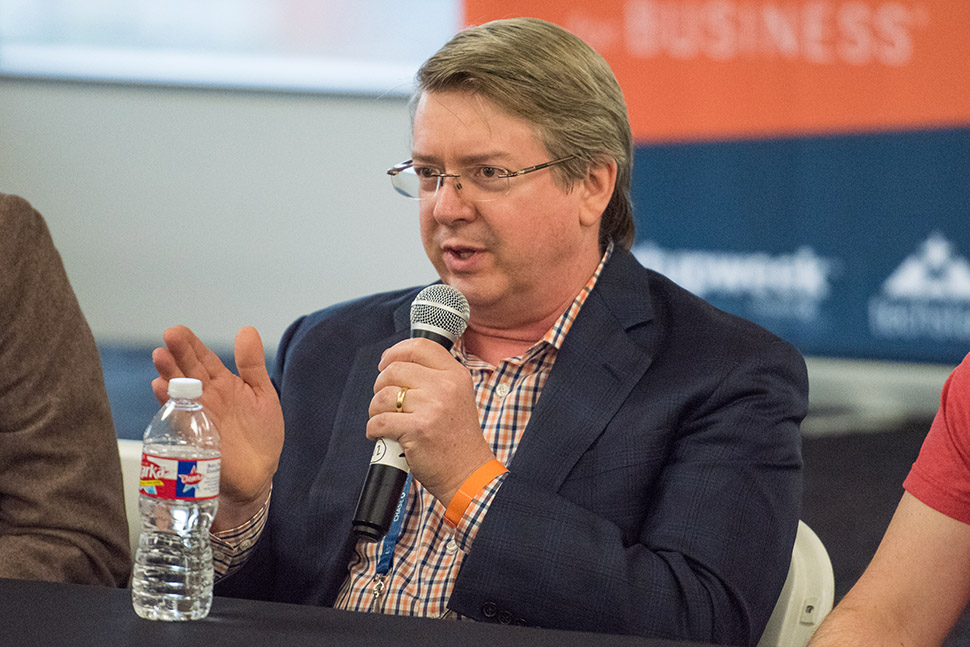
David Matthews at Dallas Startup Week [Photo by Michael Samples]
“I wake up in the morning excited to help entrepreneurs. It’s a super fun place to play,” Matthews said. “Amazon doesn’t own it all — just 5 percent and growing.”
Technology can also make geography irrelevant, as some startups use video conferencing to remotely attend mentor sessions, Matthews said.
Tahir Hussain, CEO and managing partner for Collide Village, takes a different approach, investing money in one company per quarter. Their goal is to get that startup revenue positive.
“This really is to put our effort into the execution of these companies.”
Tahir Hussain
“This really is to put our effort into the execution of these companies,” Hussain said.
Before approaching an accelerator, an entrepreneur should know their idea will get picked apart and they must be coachable.
“We want to make sure that at least they are receptive to the feedback we are willing to give,” Hussain said. “Do you want to make money or do you want be a CEO?”
Ricky Tejapaibul, managing partner and CEO at Tech Wildcatters, said accelerators aren’t about the funding amounts, it’s about the connections you make.
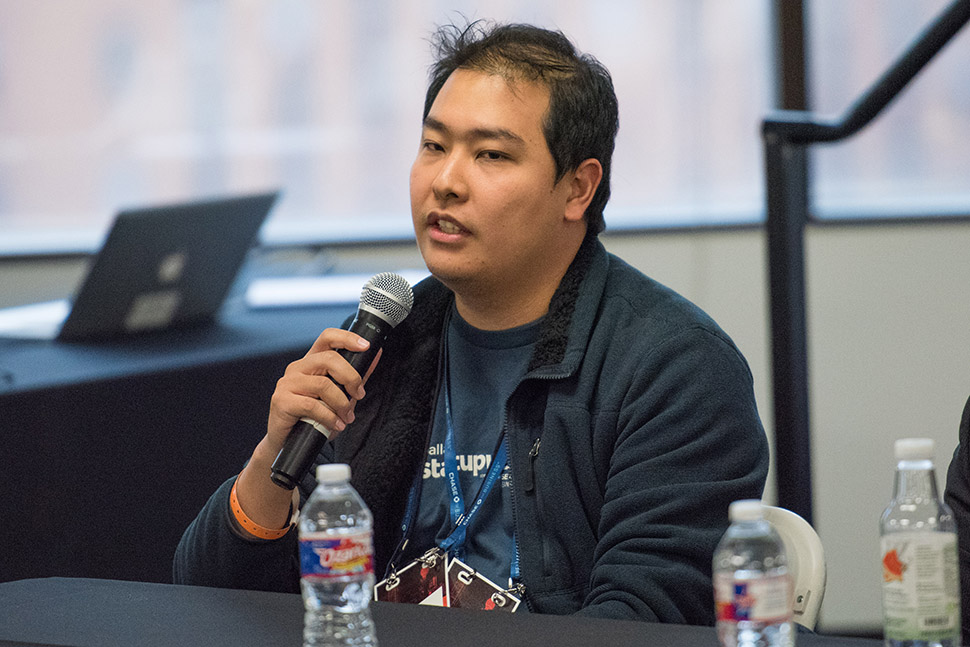
Ricky Tajapaibul [Photo by Michael Samples]
“We’re going to be your partners to scale your business,” Tejapaibul said.
Tech Wildcatters, based in the new WeWork location in Thanksgiving Tower, is accepting applications for the next gauntlet. They are due by April 23.
Temporarily moving to Silicon Valley for an accelerator just isn’t feasible for everyone.
“The cost of living in Silicon Valley for three months will get all that funding,” Tejapaibul said. “There’s more than one pathway to get there.”
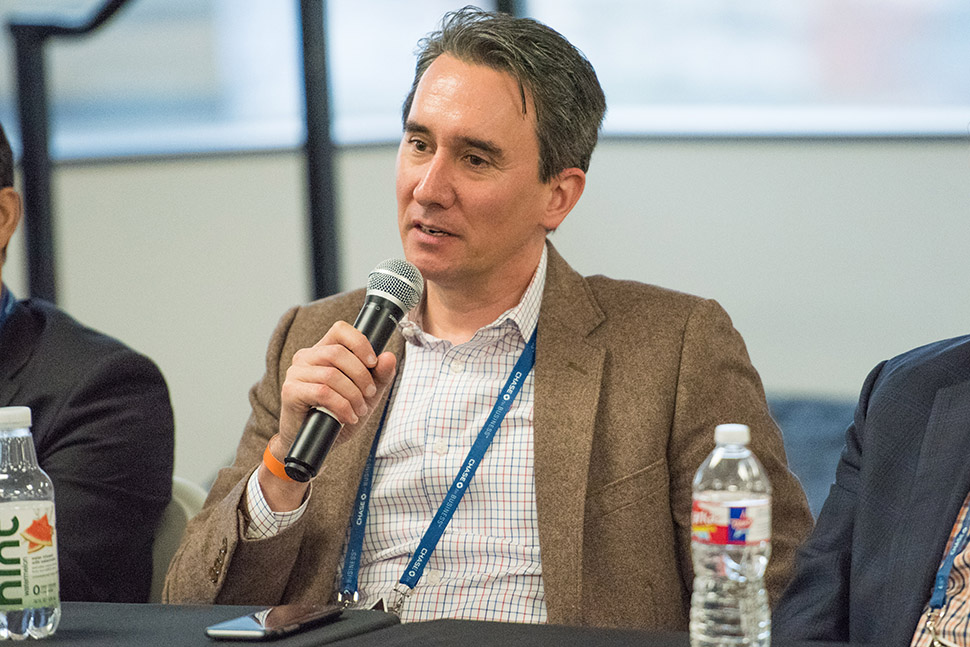
Hubert Zajicek of Health Wildcatters [Photo by Michal Samples]
“We help de-risk your company. By definition, you can only know what you know.”
Hubert Zajicek
Hubert Zajicek, co-founder and CEO of Health Wildcatters, said startups that are working in the medical field have so many more challenges to overcome when it comes to regulations, insurance and compliance.
“We help de-risk your company,” Zajicek said. “By definition, you can only know what you know.”
He joked that it would be “medical malpractice” for a health-care-related startup to choose an accelerator that focuses on that.
Accelerators, like the tech industry itself, have evolved and each one has its niche.
Matthews remembers when he worked on his startup in the 1990s and there were no resources available.
“The marketplace for startups has gotten much more efficient. It’s a lot like finding a college,” Matthews said. “There’s a thousand different variations. You heard five up here today. So choose wisely.”
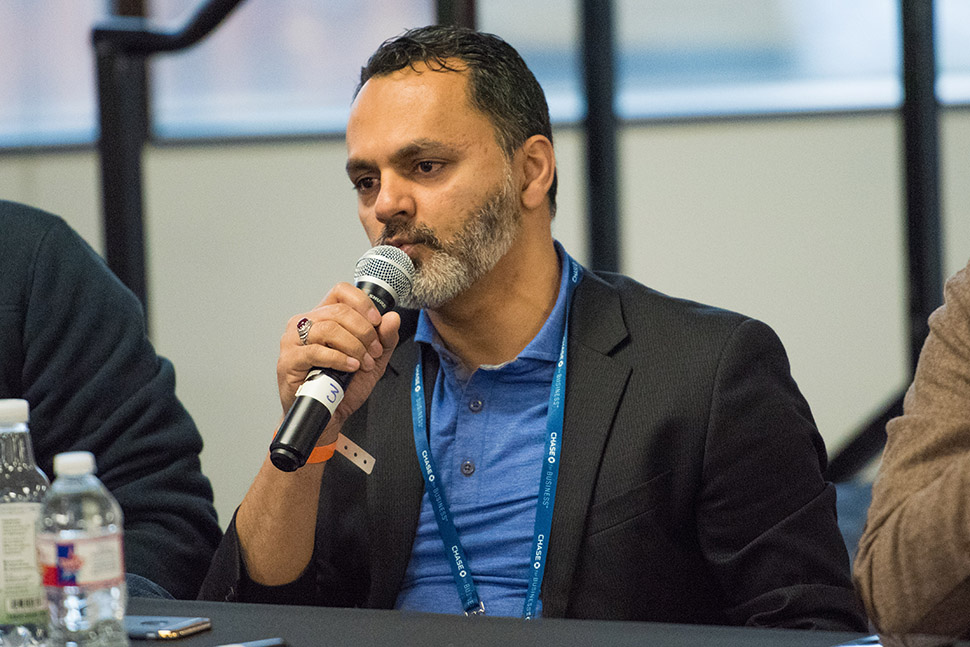
Tahir Hussain, CEO and managing partner for Collide Village, takes a different approach, investing money in one company per quarter. [Photo by Michael Samples]
READ NEXT
Business of Social: Bringing the Entrepreneurial Mindset into Nonprofits
Social impact took centerstage Tuesday morning at Dallas Startup Week as Dallas-based leaders gathered to talk about the role of social entrepreneurship in nonprofit organizations.
The Future of IoT Rests on Putting the Puzzle Pieces Together
Within two years, the IoT market could become a $11 trillion market said Ilumi Solutions CEO Corey Egan during Dallas Startup Week.
Dallas Startup Week 2018: Day 1 Roundup
![]()
Get on the list.
Sign up to keep your eye on what’s new and next in Dallas-Fort Worth, every day.

